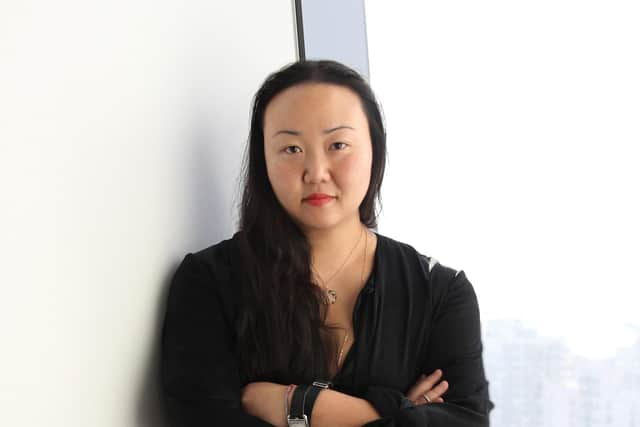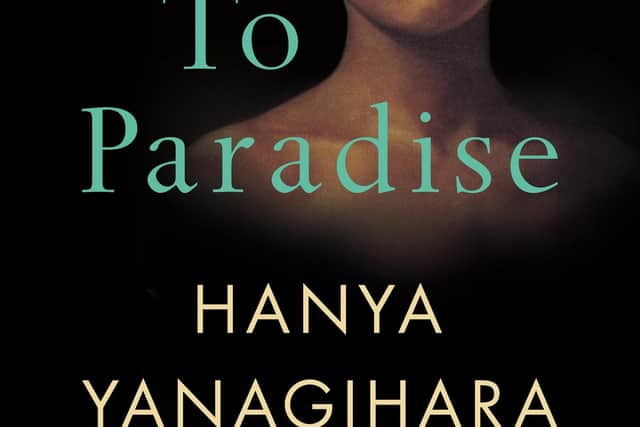Book review: To Paradise, by Hanya Yanagihara


Hanya Yanagihara’s previous novel, A Little Life, sold over a million copies – so the press release trumpets – and it divided readers. Personally, although I understood why a novel about abuse and its consequences might be unrelenting, I found it almost like the work of the Marquis de Sade. There is a point where endless horribleness becomes boring rather than shocking.
This new novel is a strange confection. It is a triptych of narratives, with leitmotifs and significant phrases and recurrent names, spread across the 19th and 20th centuries and part of the 21st century yet to come. The echoes and resonances seem more like attempts to stitch together part finished or slightly under-realised novels into the semblance of a whole work. There are parts that are very good, and the novel’s most moving and provocative section was a nudge to go and research the debates about Hawaii becoming part of the United States. But as for the rest: well, every novel has its own guilty conscience. This snags at the reader the whole time. “‘Those stories are apocryphal.’ ‘What does that mean?’, I asked him. ‘It means untrue.’” Or in another section “‘Well, it’s just a story’… ‘That’s exactly my point.’” When a novel keeps insisting on its own status as fiction, I wonder if the reader is expected to take any of it seriously. There is a kind of postmodern hand-swirling about this which can seem, unfortunately, dismissive.
Advertisement
Hide AdThe book opens with two words: Washington Square, and the rest of the section is an ersatz version of Henry James, whose Washington Square some critics think his most perfect novel and which he himself constantly dismissed. In this section, David, the heir of the Bingham family is told by his grandfather he has arranged a marriage for him, to Charles Griffith. It is counterfactual, and the reader soon learns that the United States has fragmented: the Free States, the Colonies, the still untamed West; and that same-sex marriages are not only legal but expedient to make ties between families of influence. It is no more like Henry James than a paperclip is to a Zeppelin, and the style is pastiche. Take, for example, “They all stood there for a moment in silence, and for a second David felt the old embarrassment he often sensed for the three of them, the Bingham siblings, that they should have nothing to say to one another – or, rather, that they should not know how to say anything – were it not for the presence of their grandfather, as if the only thing that made them real to one another were not the fact of blood and history, but him.” To me, this sounds a lot more like Downtown Abbey than The Golden Bowl. That it is in an imaginary past makes the actual struggles of figures like Oscar Wilde somewhat diminished. Writers like Sebastian Barry and Annie Proulx have been far more humane about sexuality in America before the Great War.


David, who has nervous turns, turns down Charles and is in love with a possible bounder, Edward. We scroll forward to the following century and there are different iterations of Charles, David and Edward, facing the reality of AIDS, but nowhere as powerfully as Tristan Garcia’s Hate: A Romance. Then we are fast-forwarded again to dual narratives about another Charles and his grand-daughter Charlie. This section is by far the least successful as it attempts to shoehorn in every concern we face in the real-time present. Charles has been a virologist; Charlie is orphaned and in her grandfather’s care. The narrative flicks between when Charles was first dealing with the new pandemics, but takes in legislation against same-sex marriages, terrorism, drones, ecological catastrophe, rape, authoritarian government, food poverty, isolationism, racism, colonialism and any other issue you can imagine. It also allows for numerous sententious speeches from the characters about topics of concern, but little room for subtlety or deep consideration.
If this is three novels repurposed as one, it is still far, far too long. Any reader will see the themes of loneliness, alienation, exclusion and underlying fear trip between the sections. But at 700 pages, it is quite an ask to expect us to care about characters that are so obviously and evidently fictional. Even on the level of the sentence it is too verbose. Even in the 1980s section, we have “Not because it wasn’t true – he would love Charles, he would tell all his future lovers, his future husband, his future son, his future colleagues and friends, about Charles for decades after his death: the lessons he learned from him, the places they had visited together, the way he smelled, how brave and generous he had been, the way he taught him to eat marrow, escargot, artichokes, how sexy he had been, how they had met, how they had parted – but because he had had enough of being someone’s legacy; he knew the fear of feeling inadequate, the burden of disappointment”. Less is sometimes a lot more.
In each section there is a vision of utopia; in each it is crowded out with extraneous detail. There is no doubt that Yanagihara has talent, but this is an indulgent book, pontificating and sentimentalising at the same time. Neither characters nor readers ought to be puppets on a string, twitched at the author’s whim.
To Paradise, by Hanya Yanagihara, Picador, £20
A message from the Editor:
Thank you for reading this article. We're more reliant on your support than ever as the shift in consumer habits brought about by coronavirus impacts our advertisers.
If you haven't already, please consider supporting our trusted, fact-checked journalism by taking out a digital subscription at https://www.scotsman.com/subscriptions